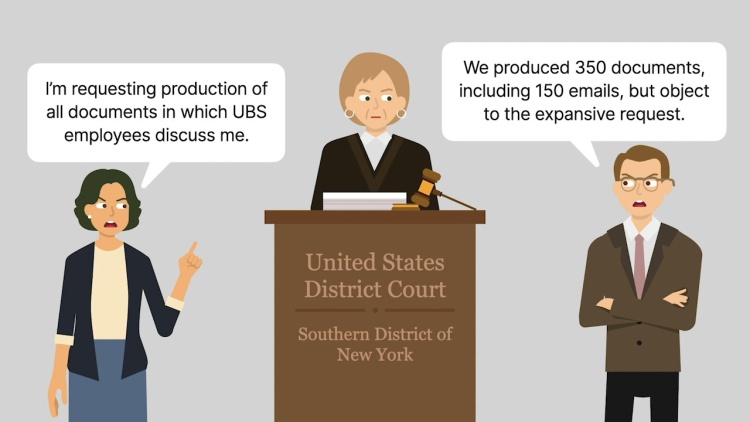Zubulake v. UBS Warburg LLC (Zubulake I)
United States District Court for the Southern District of New York
217 F.R.D. 309 (2003)
- Written by DeAnna Swearingen, LLM
Facts
Laura Zubulake (plaintiff) filed a complaint with the Equal Employment Opportunity Commission alleging gender discrimination and retaliatory firing by UBS Warburg LLC (UBS) (defendant). Zubulake sued in the United States District Court for the Southern District of New York under Title VII of the Civil Rights Act of 1964, 42 U.S.C. § 2000e et seq. (Title VII), New York state law, and New York City administrative regulations. During discovery, Zubulake requested all documents in which UBS employees discussed Zubulake, including “electronic or computerized data compilations.” UBS objected, but produced 100 pages of emails. The parties agreed in a conference with a magistrate that UBS would produce “responsive emails if…possible” for individuals named by Zubulake, but UBS later asserted that its initial production fulfilled the agreement. UBS did not search backup tapes and claimed that the cost to do so would be about $300,000. Zubulake objected and produced 450 pages of emails. In deposition, a UBS employee testified that emails covered by the request were copied periodically and stored on 94 backup tapes, which are costly and time-consuming to restore, and that the external emails of registered traders are stored on optical disks. Zubulake seeks production of all remaining emails at UBS’s expense, and UBS argues that discovery is complete or that the costs should be shifted to Zubulake under Rule 26(c) of the Federal Rules of Civil Procedure (FRCP).
Rule of Law
Issue
Holding and Reasoning (Scheindlin, J.)
What to do next…
Here's why 907,000 law students have relied on our case briefs:
- Written by law professors and practitioners, not other law students. 47,100 briefs, keyed to 996 casebooks. Top-notch customer support.
- The right amount of information, includes the facts, issues, rule of law, holding and reasoning, and any concurrences and dissents.
- Access in your classes, works on your mobile and tablet. Massive library of related video lessons and high quality multiple-choice questions.
- Easy to use, uniform format for every case brief. Written in plain English, not in legalese. Our briefs summarize and simplify; they don’t just repeat the court’s language.





